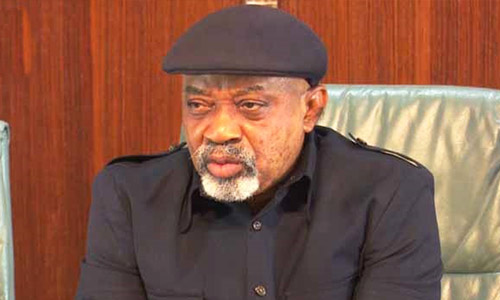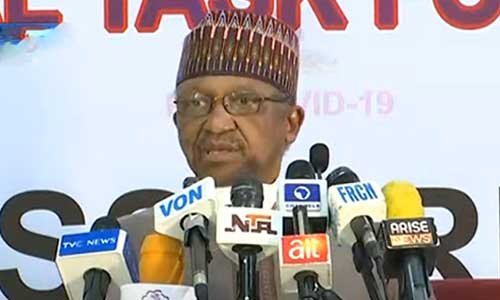THE EXECUTIVE 20/12/2021
FG Yet To Decide On Fuel Subsidy Removal, Ngige Clarifies

The Minister of Labour and Employment, Senator Chris Ngige, has said the federal government is yet to approve any policy on the removal of fuel subsidy.
The National Executive Council (NEC) of the Nigeria Labour Congress (NLC) had resolved to hold a national protest on February 1, 2022, against the plans by the federal government to remove fuel subsidy.
The decision was contained in a communique issued on Friday in Abuja and signed by NLC President, Comrade Ayuba Wabba and General Secretary, Mr. Emmanuel Ugboaja, after the NEC meeting.
The NLC said before the national protest, the labour union would hold protest rallies in all the 36 states of the country on January 27, against the subsidy removal.
But Ngige told newsmen yesterday that there was no need for the labour movement to be raising concern over the matter since the government was yet to discuss anything in that direction.
Ngige who reacted to the threat by the NLC said the issue of whether to remove fuel subsidy or not had not been tabled before the Federal Executive Council (FEC) where such decisions should be taken.
“That’s their NEC decision but there’s no point overheating the polity as there is neither any FEC discussion nor decision on the fuel subsidy removal or non-removal.
“I wish them the best of the season merry Christmas and a happy and prosperous 2022”.
NLC had stated that the protests would commence without warning should the FG announce new fuel prices.
The federal government had said it would remove the fuel subsidy next year, following advice by the International Monetary Fund (IMF), and the World Bank.
In its place, the Minister of Finance, Mrs. Zainab Ahmed, said about 40 million poor Nigerians would be paid a N5,000 monthly stipend for transportation.
But the NLC argued that fuel subsidy would expose Nigerian workers and the generality of the citizenry to acute deprivation, hardship, and suffering, and also worsen the already established trend of hyperinflation in the country.
It also attributed the crisis in Nigeria’s downstream petroleum sub-sector, especially as it relates to the petrol pump price regime, to the policy of importation based on a pricing template for refined petroleum products as against local production-based pricing template.
It said that the government should promote the local capacity to refine petroleum products for domestic use.


